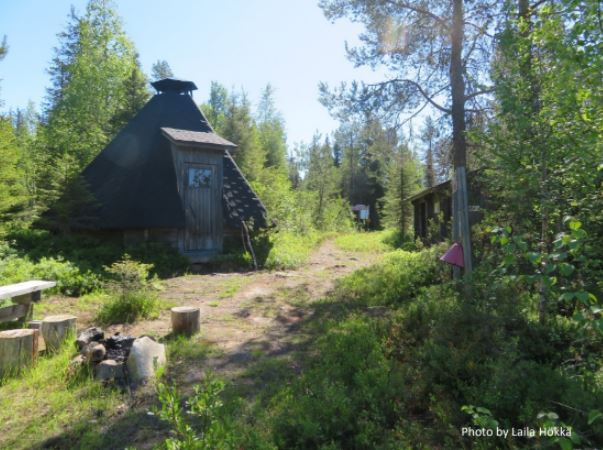Summary
Kuusamo cooperation network (2016-2019) is one of the first attempts to use private forests as a tourism destination and provide a possibility to compensate their use for private forest owners. The aim of the Kuusamo project is to enable contracts between private forest owners and tourism entrepreneurs. The contract has features of land tenure, collective implementation and result-based agreement. Contracts increase access to attractive landscapes and sceneries, and this recreational access can improve physical and mental health. Contracts support rural viability and vitality. The project was initiated by the Forest Centre who took contact to voluntary forest owners and planned 14 nature trails leading to the protected spots. Local tourism enterprises are offered a map of these nature trails as well as additional facilities (parking area, shelter, fireplace). The length of the trails vary from 2-5 kilometers and they are not marked into the forest. Forest owner and the enterprise are free to agree the compensation model, for example number of people visiting the spot. By the end of the project, four contracts will have been made.
Objectives
- Create a contract model and enable cooperation to born between forest owner and local tourism enterprises (rural vitality);
- Promote nature-based tourism (landscape, scenery, recreational access) together with biodiversity protection and forestry, i.e. multifunctional forest management;
- Deliver knowledge of Finnish forestry and multiple uses of forests to foreign tourists (rural vitality).
Public Goods


and vitality


Problem description
The Rueda case study is located in the Duero River basin in northern-central part of Spain, where it occupies an area of 280,000 ha and currently grapewine is grown in almost 15,000 ha. Rueda belongs to the Mediterranean Continental pedoclimatic zone. The Rueda region is one of the wine regions in Spain that is more profitable, but at the same time needs a lot of man work, so organic production is a clear alternative. Wine production in the area in Rueda, is challenged by four main threats: water scarcity, decrease in financial support from the CAP, frost and future climate projections. The sustainability of wine production in the area is dependent on organic production that is becoming more attractive to consumers and with very high demand for export. The Rueda region offers a great possibility for organic production since the limited summer rainfall guarantees low incidence of diseases, especially mildew, therefore if the crop is
adequately managed, does not require pesticides. Riscal is a leading company for innovation for organic production in technology and commercially. The producers also plant trees in the edges of the fields to comply with the greening measures of the CAP.
